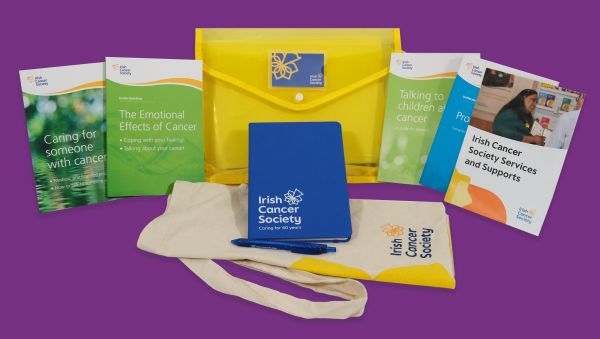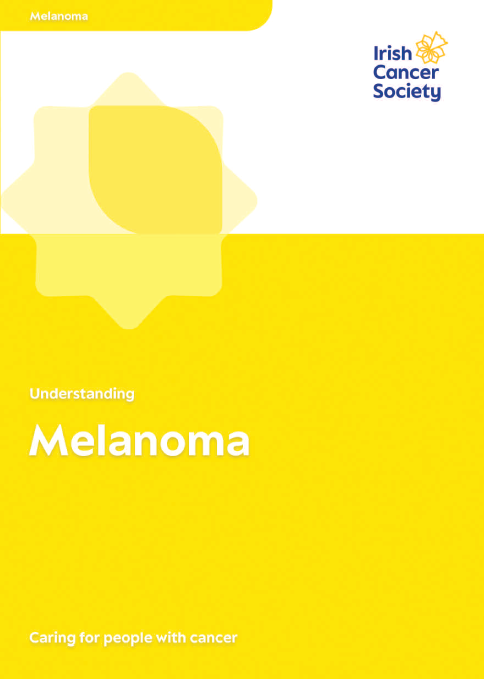Melanoma
Treatment
How is melanoma treated?
- The best treatment for you will mainly depend on the stage of your melanoma – where it is, how thick it is and if it has spread.
- In general, surgery is the main treatment for early-stage melanoma and drug treatments are used for later stage melanoma, but your treatment plan will be tailored to you.
- You may have a combination of treatments. For example, surgery followed by a course of immunotherapy.
- Your treating team will discuss your treatment plan, which will be planned specifically for you.
Treatment of melanoma is advancing quickly - new approaches, timing of treatment and combination of treatments will be considered by the multidisciplinary team.
Surgery for melanoma
Surgery is the main treatment for early-stage melanoma. After having the melanoma removed, you are likely to have further surgery to remove normal skin around the affected area. This is called wide local excision and is done to reduce the risk of the cancer coming back in the same area.
We have more information about melanoma surgery.
Treatment after surgery
- A team of doctors and nurses, called the multidisciplinary team (MDT), will meet to discuss your case and see if you need further surgery or treatment.
- If your melanoma has been fully removed but it is thick or you have cancer in your sentinel lymph node, your doctors may recommend treatment to reduce the risk of the melanoma coming back or to treat any cancer fosurgund in nearby lymph nodes.
- Treatment after surgery is called adjuvant treatment. Adjuvant treatment may involve drug therapies such as targeted therapies and immunotherapy.
- If your melanoma has not been fully removed or has spread to other organs, the MDT will consider further treatment options. These may include surgery, targeted therapy, immunotherapy, chemotherapy and radiotherapy.
Drug treatments for melanoma
Drug treatment after melanoma surgery
This is to reduce the risk of the cancer coming back or to treat cancer in lymph nodes close to the original cancer site.
Drug treatment before melanoma surgery
This may reduce the size of some melanomas to make them easier to remove. Your consultant will advise you if this is an option for you.
Drug treatment for melanoma that has spread
- Drugs are the main treatment for melanoma that cannot be
removed by surgery and/or has spread to nearby tissues or other parts of the body. This is called metastatic or advanced melanoma. - The aim of treatment is to control the cancer. Modern treatments can control metastatic cancer for a long time. You can also have treatment to improve any side-effects or symptoms.
- Metastatic cancer is still melanoma even if it is found in another part of your body and will be treated with melanoma treatments.
- The best treatment for you will depend on the type and size of the melanoma, where it is found and if any organs are affected. You may also be offered new drugs or a combination of drugs as part of a clinical trial.
Types of drug treatment for melanoma
Targeted therapies for melanoma
- Targeted drug therapies ‘target’ specific proteins or genes that help a cancer to grow or survive.
- Different types of targeted therapies work in different ways. For example, cancer growth inhibitors block the chemical signals that trigger cancer cells to divide and grow.
- Targeted therapies used for melanoma include:
- BRAF inhibitors: These target an abnormal change in the BRAF gene that produces too much of the BRAF protein – this helps the cancer to grow. About half of melanoma patients in Ireland have a change in the BRAF gene (BRAF-positive melanoma).
- MEK inhibitors: These drugs block a protein called MEK that helps cancer to grow. The BRAF gene change affects the MEK protein too, so MEK inhibitors can help to treat melanomas with BRAF gene changes.
- You may have a combination of drugs. For example, you may have both a BRAF inhibitor and a MEK inhibitor.
Immunotherapy for melanoma
- Immunotherapy works by helping your immune system to recognise and attack cancer cells.
- The most common immunotherapies are drugs called checkpoint inhibitors. For example, anti-PD-1 and CTLA 4 inhibitors. PD-1 and CTLA 4 proteins help to switch off or slow down the immune system.
- Giving anti-PD-1 and CTLA 4 inhibitors helps to boost the immune system to keep working to reduce the risk of your melanoma recurring or to control your cancer.
- These drugs are usually given into a vein (intravenously) as a day case.
Find out more about targeted therapies and immunotherapy for melanoma.
Chemotherapy for melanoma
- Chemotherapy uses drugs to kill cells, including cancer cells.
- It may be used if targeted therapies and immunotherapy are not good options for you.
- Chemotherapy can be given to control advanced melanoma and / or to improve symptoms.
Read more about chemotherapy.
Radiotherapy for melanoma
Radiotherapy uses high-energy rays to destroy cancer cells. It is not often used to treat melanoma. It can be used to treat recurrent melanoma or if the melanoma has spread to other parts of your body. Radiotherapy can also help to relieve pain.
Read more about radiotherapy.
Will I get side-effects?
The type of side-effects you get will depend on the type of treatment you have, the dose, the duration and your own general health. Your doctor or nurse will discuss any possible side-effects with you before your treatment.
Read more about coping with cancer side-effects.
Local recurrence
- Occasionally melanoma comes back close to the original melanoma site. This is called local recurrence.
- Surgery is the main treatment for a melanoma that comes back in the same area.
- Other treatments are radiotherapy, electrochemotherapy or isolated limb perfusion (ILP).
- With electrochemotherapy, chemotherapy is injected into the melanoma or into your bloodstream. Then a probe that gives out electrical pulses is put into or near the melanoma. The pulses help the chemotherapy attack and destroy the cancer cells.
- ILP is where chemotherapy is given directly into an affected limb.
For more information on treatments for recurrent melanoma, you can talk to a cancer nurse by calling our Support Line on 1800 700 200, emailing the nurses at supportline@irishcancer.ie or visiting a Daffodil Centre.




Get help & support

Support Line
Free support pack


